They say there’s a moment in every long day when your body sighs before your mind even catches up. That quiet exhale, subtle and nearly invisible, is the soul’s way of whispering: It’s quittin’ time.
For most, quittin’ time rolls around when the clock hits five—or six, or seven, depending on the job. It’s when factory machines grind to a halt, computers dim their blue light, the last customer walks out the door, or a ranch hand tosses the final bale of hay onto the truck bed. It’s a signal, a ritual, a promise of rest after honest work.
But for others, quittin’ time isn’t about a shift change. It’s about a decision. A reckoning. A line drawn in the dirt, not by time, but by choice. Some people don’t clock out—they walk out.
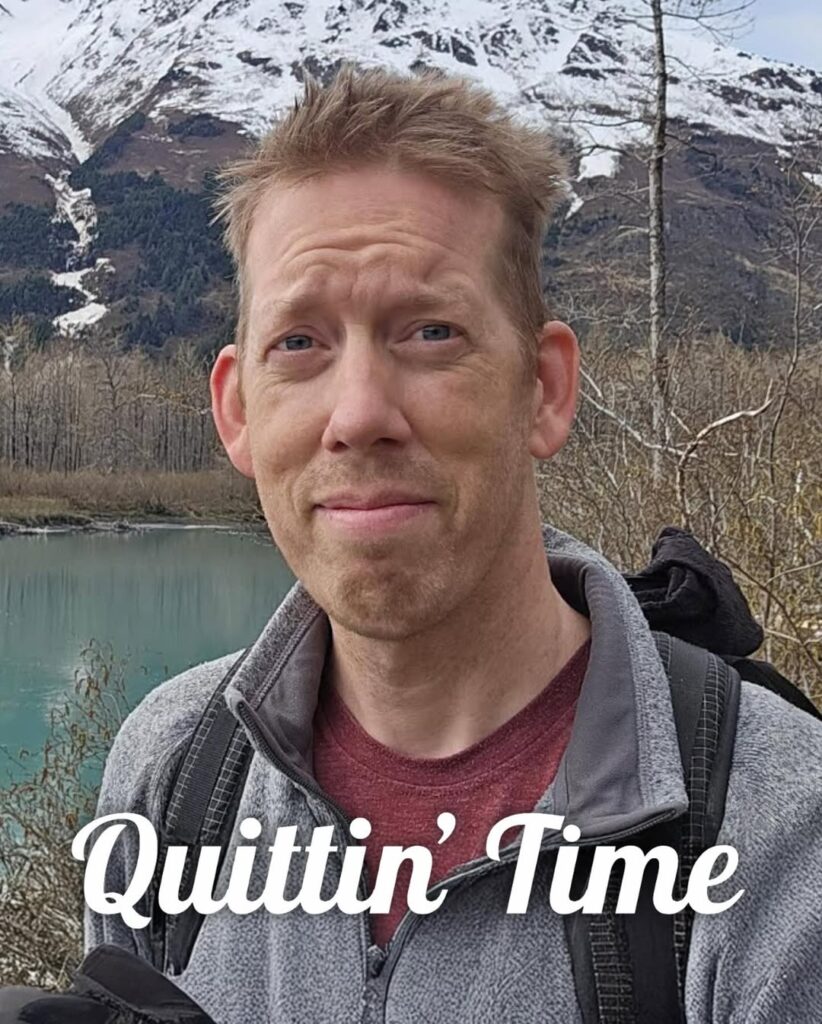
Joe Mathers had been working at McKinley Lumber for 31 years when he said it. Nobody expected it. He wasn’t the kind of guy to make a scene. Quiet, strong-backed, the kind of man who brought his lunch in a brown paper bag and didn’t complain when the saws jammed or the orders piled up.
But that Thursday afternoon, with the sawdust hanging in the air and the radio low in the background, Joe took off his gloves, laid them on the bench, and said simply, “That’s it. I’m done.”
The others looked up, confused.
“Done with what?” asked Kenny, the younger guy, covered in flecks of cedar.
Joe nodded slowly, like the truth had been sitting in him for years and he’d finally made peace with it. “With this. With all of it. It’s quittin’ time.”
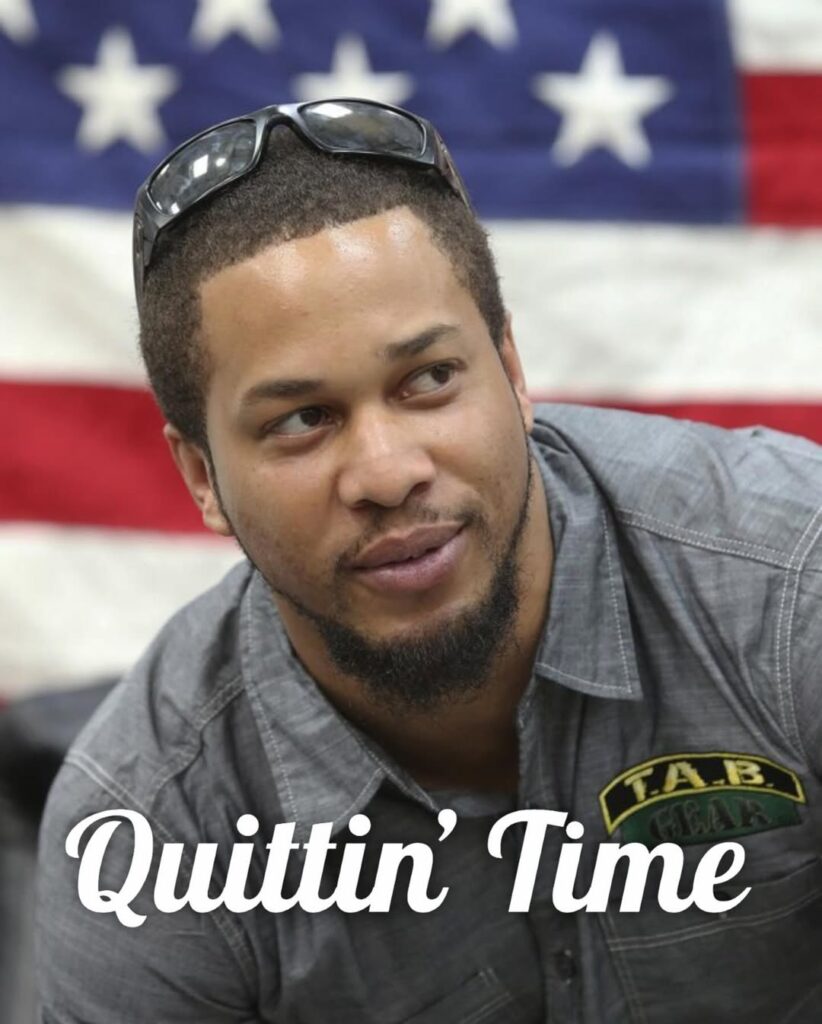
Quittin’ time, for Joe, didn’t mean retirement in the traditional sense. He wasn’t old enough for a pension and didn’t have enough savings to live large. But somewhere between the endless orders and the smell of cut pine, he realized he’d spent more years than he meant to doing something that made him tired all the way down to his bones.
His kids were grown. The mortgage was nearly paid off. And one day, while staring at a calendar pinned to a wall, he realized he’d been putting off the things he cared about until a tomorrow that might never come. He once wanted to fix up the old motorcycle in his garage. He used to talk about building a canoe by hand, fishing the inland lakes up north like he did when he was a kid.
Somewhere along the line, though, those dreams got wrapped in plastic and stored in the back of a mental closet labeled “later.” But “later” is a slippery thing. It has a habit of never arriving unless you grab it by the collar.
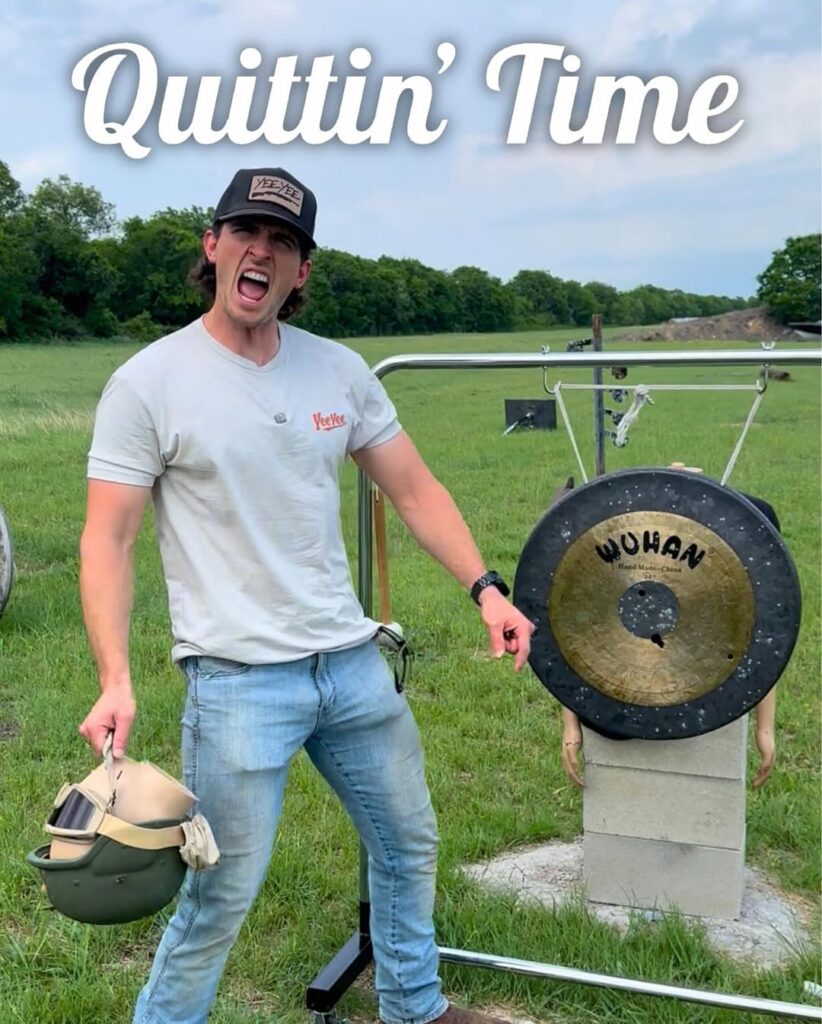
There’s a kind of magic in walking away from something that no longer fits. It’s not always easy, and it sure as hell isn’t always neat. Sometimes quittin’ time comes with second thoughts, fear, even guilt. But there’s power in listening to that quiet inner voice when it finally speaks up.
People quit all kinds of things. Not just jobs. Some walk away from relationships that have grown cold and brittle. Others leave hometowns that feel too small for the dreams they carry. Some quit chasing perfection, realizing it’s a race with no finish line. Others quit pretending to be someone they’re not, shedding masks worn for too long.
For Martha, quittin’ time came one rainy Tuesday morning in a grocery store parking lot. She’d been married for 19 years to a man who stopped seeing her somewhere around year ten. She sat in her car, bags of groceries in the backseat, and stared at her reflection in the rearview mirror. Her eyes looked tired in a way no sleep could fix. That’s when it hit her: the life she was living was not the life she wanted.
That night, she packed a bag, wrote a letter, and drove to her sister’s house three towns over. It wasn’t easy, and it wasn’t tidy. But it was real. For the first time in years, it felt like she was breathing her own air.
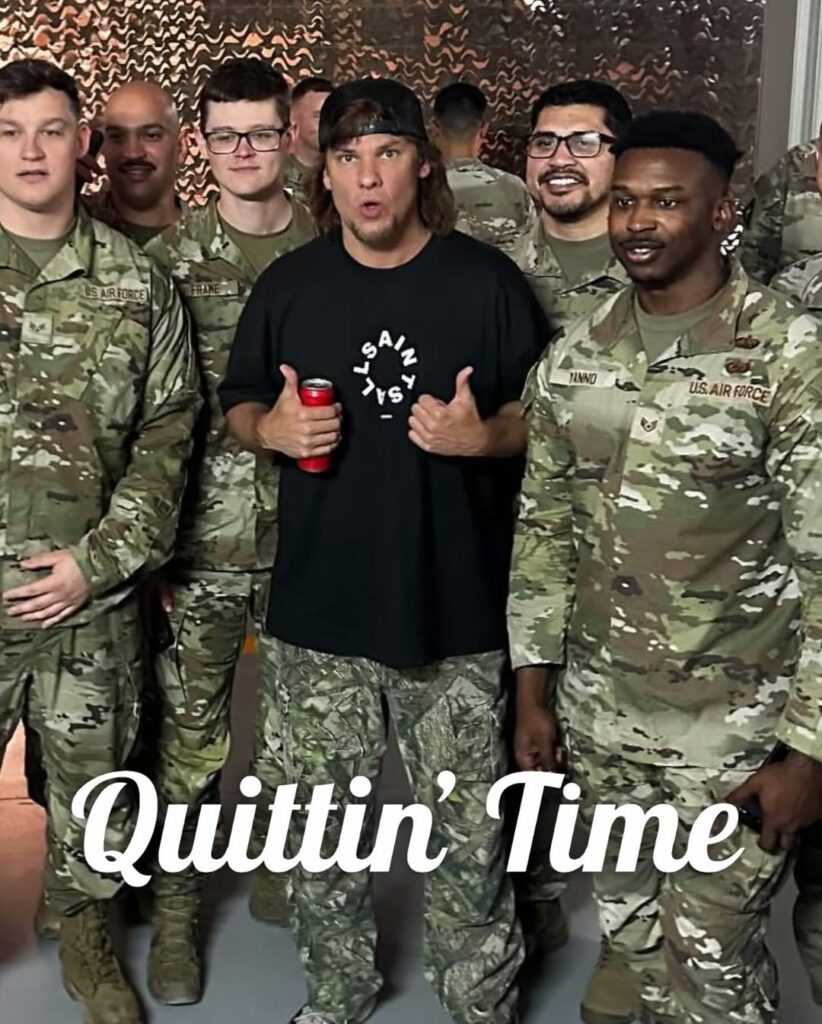
Quittin’ time doesn’t always come with applause. No confetti. No grand send-off. Sometimes, it’s just a quiet moment. A decision made in a whisper, not a shout. You stand up, brush the dust off your jeans, and say, “That’s enough.” And that’s plenty.
Of course, not all quitting is noble. Walking out on responsibilities without warning, leaving others to clean up the mess—that’s something else entirely. But quitting with clarity, quitting with honesty—that’s different. That’s an act of self-respect.
In a world that glorifies pushing through, grinding endlessly, and wearing burnout like a badge of honor, there’s something deeply radical about stopping. About saying no more. About choosing presence over productivity.
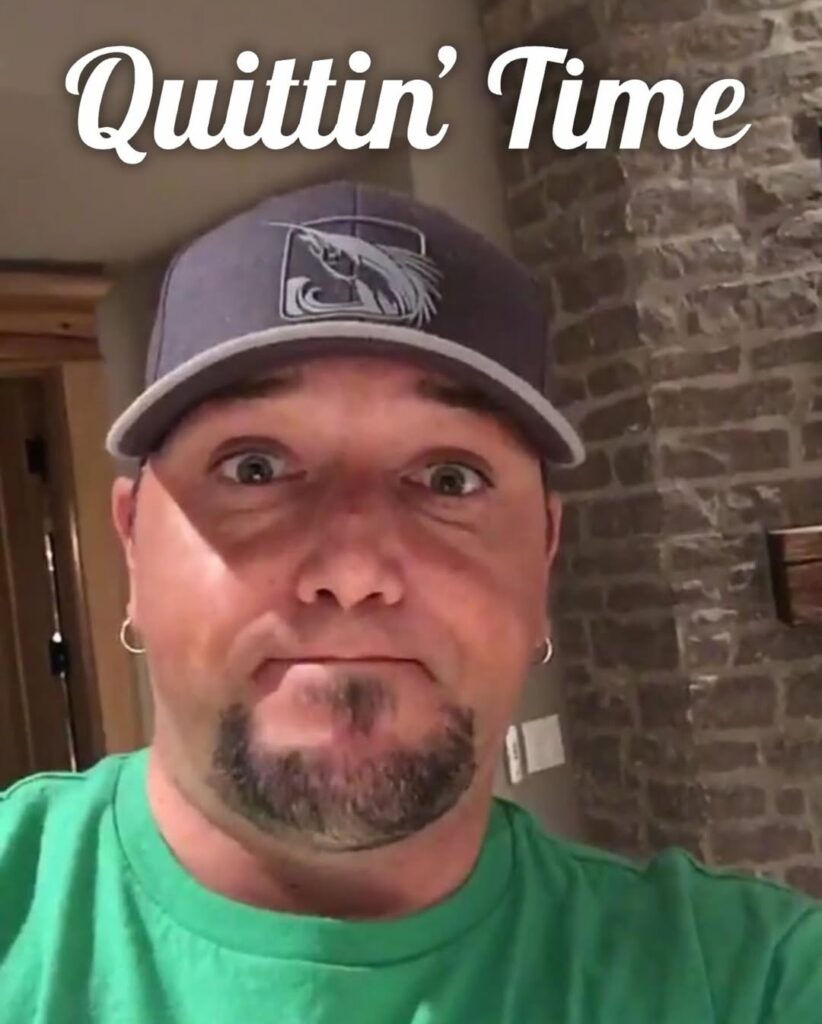
Back in town, folks still talk about Joe. Some think he was crazy. Others say he was brave. A few quietly wonder what it would be like to do the same.
Turns out, Joe didn’t disappear after that last day at the mill. He fixed up the old motorcycle, took a few road trips, started building furniture in his garage. Nothing fancy, just pieces with heart—tables, chairs, shelves. Sometimes he gives them away to friends, sometimes he sells them at the weekend market.
When people ask him if he misses the old job, he shrugs. “Not really,” he says. “I liked the people. But not the way it made me feel. There’s a difference.”
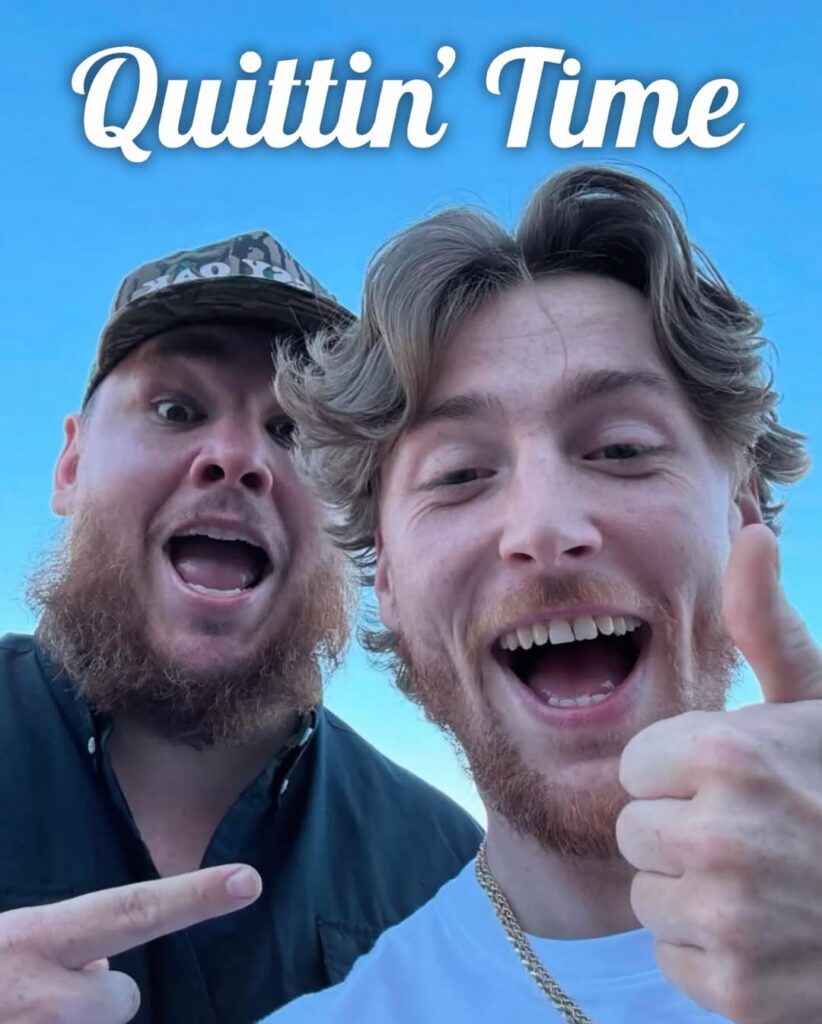
We all carry that moment inside us—that future quittin’ time waiting to arrive. It might not be today. It might not be for years. But if you listen closely, sometimes you can hear its footsteps in the distance.
It’s not weakness to stop. It’s wisdom.
Because every ending is a beginning, too. And sometimes, the best way to find what you’re meant to do is by finally quitting what you’re not.

So here’s to quittin’ time.
Not just the end of the workday.
But the beginning of something better.
The pause before the next step.
The breath before the leap.
And may we all have the courage to hear it—and to know when it’s time.



